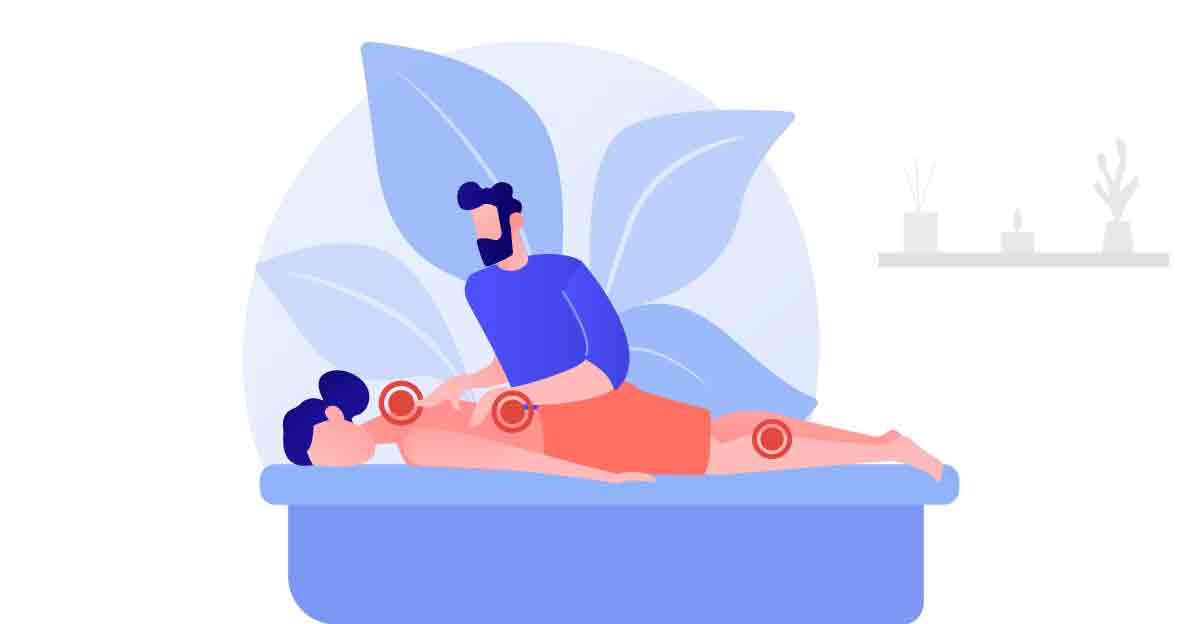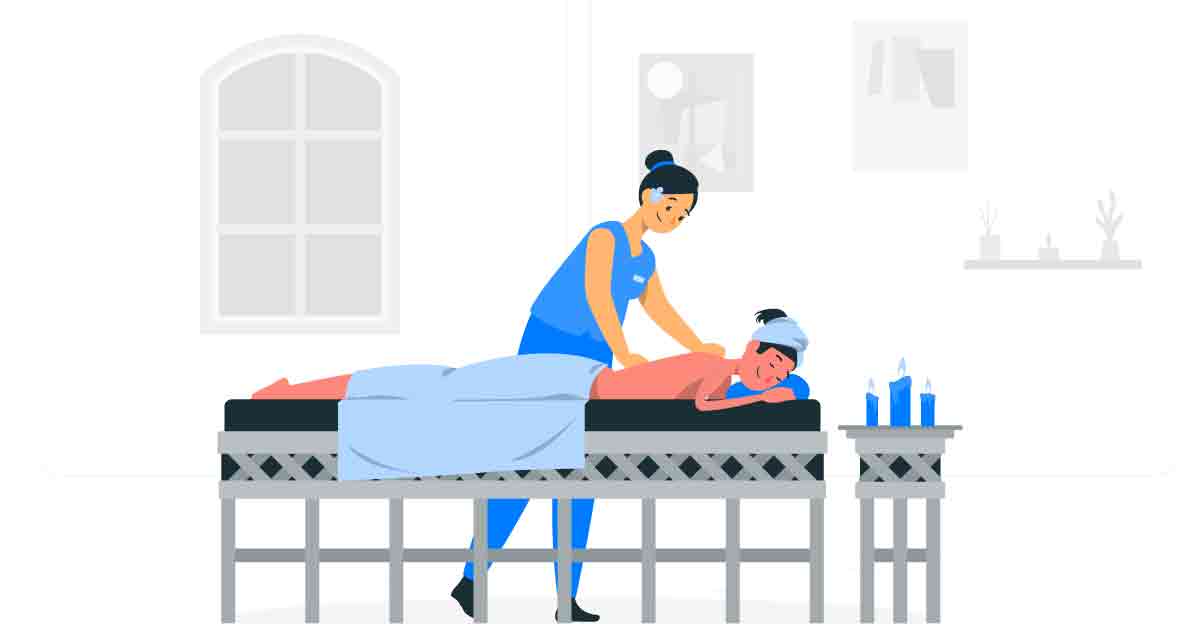Spa and Massage for Sleep Improvement and Insomnia Relief
It is during sleep that our bodies repair and rejuvenate themselves, allowing us to wake up feeling refreshed and energized. However, for many individuals, achieving quality sleep can be a constant struggle. A sizeable fraction of the population experiences insomnia, which is characterized by difficulties sleeping or staying asleep. Fortunately, spa and massage treatments offer a natural and effective solution to improve sleep and find relief from insomnia.

If you’re looking for a way to enhance your sleep quality and find relief from insomnia, indulging in a spa and massage experience can be a wonderful option. A visit to the best relief spa near me , such as Body Relief Day Spa, can offer a range of treatments specifically designed to promote sleep improvement and relieve insomnia. These spas offer a serene environment that helps you unwind and relax, setting the perfect stage for a restful night’s sleep.
At Body Relief Day Spa, their expert therapists provide massages that target the body’s tension points, releasing built-up stress and promoting deep relaxation. Their skilled hands work their magic, employing techniques like Swedish massage, deep tissue massage, and aromatherapy, all aimed at soothing the mind and body. By alleviating muscular tension and promoting blood circulation, these massages not only induce a sense of calm but also assist in regulating sleep patterns.
With the gentle aromas and soft music in the background, the spa creates an atmosphere conducive to a peaceful slumber, allowing you to drift off into a state of blissful sleep. So, if you’re seeking the best relief spa near me for sleep improvement and insomnia relief, a visit to Body Relief Day Spa can be just what you need.
Understanding Insomnia
Insomnia is a sleep disorder that can have a profound impact on our daily lives. The inability to get adequate sleep can lead to daytime fatigue, decreased cognitive function, mood disturbances, and a variety of other health issues. While there are various causes of insomnia, including stress, anxiety, and medical conditions, the good news is that it can often be effectively managed through holistic approaches like spa and massage therapies.
The Benefits of Spa and Massage for Sleep Improvement
Relaxation and Stress Reduction: Spa and massage treatments are known for their ability to induce deep relaxation and alleviate stress. By reducing stress levels, these therapies help prepare the body and mind for restful sleep.
Pain Relief and Muscle Relaxation: Chronic pain and muscle tension can interfere with sleep. Spa and massage techniques target specific areas of discomfort, releasing tension and promoting pain relief, allowing for a more comfortable sleep experience.
Improved Immune Function: Spa and massage treatments have been found to boost the immune system. By reducing stress and promoting relaxation, these therapies help strengthen the body’s defense mechanisms, making it more resilient to illnesses that can disrupt sleep patterns.
Reduced Anxiety and Depression: Anxiety and depression can significantly impact sleep quality. Spa and massage therapies have been shown to reduce symptoms of anxiety and depression, creating a calmer mental state that promotes better sleep and overall well-being.
Relief from Insomnia: Insomnia is a common sleep disorder characterized by difficulty falling asleep or staying asleep. Spa and massage treatments can provide relief from insomnia by promoting relaxation, reducing anxiety, and calming the mind, making it easier to achieve restful sleep.
Decreased Tension Headaches: Tension headaches can be caused by muscle tension and stress. Spa and massage techniques, particularly those targeting the head, neck, and shoulders, can alleviate tension and reduce the frequency and severity of tension headaches, leading to more peaceful sleep.
Lowered Blood Pressure: High blood pressure is a risk factor for various health conditions and can disrupt sleep patterns. Regular spa and massage treatments have been shown to reduce blood pressure levels, promote better cardiovascular health, and improve sleep quality.
Improved Blood Circulation: Massage stimulates blood flow and lymphatic drainage, enhancing the delivery of oxygen and nutrients to the body’s tissues. This improved circulation can positively impact sleep by promoting relaxation and reducing restlessness.
Enhanced Mood and Mental Well-being: Spa and massage therapies have a profound effect on our mental well-being. By promoting the release of endorphins and reducing the levels of stress hormones like cortisol, they can uplift mood and create a sense of overall well-being, leading to better sleep quality.
Regulation of Sleep Patterns: Regular spa and massage treatments can help regulate sleep patterns by promoting a more consistent sleep-wake cycle. These therapies can influence the body’s production of sleep-inducing hormones like melatonin, making it easier to fall asleep and stay asleep.
Choosing the Right Spa for Sleep Improvement
When selecting a spa for sleep improvement, it is important to consider a few key factors to ensure you receive the best possible experience and results.
Researching Local Spas: Start by researching spas in your local area that offer sleep improvement or insomnia relief treatments.
Reading Reviews and Testimonials: Read reviews and testimonials from previous clients to gauge the quality and effectiveness of the spa’s services.
Considering Specialized Services: Look for spas that specialize in sleep improvement or have specific programs or treatments tailored to address sleep-related issues. These specialized services often indicate a higher level of expertise and knowledge in the field.
Assessing Therapist Qualifications: Inquire about the qualifications and training of the therapists or practitioners at the spa. Ensure they have the necessary credentials and experience in providing sleep improvement treatments.
Checking for a Relaxing Atmosphere: Visit the spa if possible to get a sense of the atmosphere and ambiance. Look for a calming and tranquil environment that promotes relaxation and induces sleep.
Considering Accessibility and Convenience: Choose a spa that is easily accessible and convenient for you to visit. Consider factors such as location, parking availability, and operating hours to ensure that attending appointments will not add unnecessary stress to your routine.
Exploring Complementary Therapies: Look for spas that offer complementary therapies such as aromatherapy, meditation, or sound therapy, which can enhance the effectiveness of sleep improvement treatments.
Considering Cost and Value: Evaluate the pricing of the spa’s services and weigh it against the value you expect to receive. Consider the expertise of the staff, quality of treatments, and overall experience to determine if the cost aligns with your expectations.
Evaluating Services and Facilities: Look for spas that offer a variety of sleep-enhancing treatments and have well-maintained facilities conducive to relaxation.
Consulting with Spa Professionals: Reach out to the spa’s staff or professionals to discuss your sleep concerns and learn about their expertise in addressing such issues.
Popular Spa and Massage Techniques for Sleep Improvement
Swedish Massage: This gentle and relaxing massage technique involves long, flowing strokes, kneading, and circular movements to promote relaxation and reduce muscle tension.
Deep Tissue Massage: Deep tissue massage employs firm pressure and slow strokes to penetrate deeper layers of muscle and fascia to relieve chronic muscular tension.
Aromatherapy Massage: Aromatherapy massage combines the benefits of massage with the therapeutic properties of essential oils. The scents of these oils can promote relaxation, relieve stress, and enhance sleep.
Hot Stone Massage: During a hot stone massage, smooth, heated stones are put on particular body parts. The heat helps relax muscles and improve blood circulation, leading to a deeper state of relaxation.
Thai Massage: Thai massage combines gentle stretching, acupressure, and yoga-like movements to improve flexibility, reduce muscle tension, and promote deep relaxation. It can help relieve stress and enhance sleep quality.
Shiatsu Massage: Originating from Japan, Shiatsu massage involves applying pressure to specific points along the body’s meridians (energy channels) to stimulate the flow of energy and promote relaxation. It can help relieve tension, reduce anxiety, and improve sleep.
Lomi Lomi Massage: Lomi Lomi is a traditional Hawaiian massage technique that uses long, flowing strokes and rhythmic movements to relax the body and soothe the mind. It promotes a sense of harmony, reduces muscle tension, and encourages better sleep.
Balinese Massage: Balinese massage combines deep tissue techniques, gentle stretching, and acupressure to release muscle tension, improve blood circulation, and promote overall relaxation. It can help alleviate insomnia, reduce anxiety, and enhance sleep.
Ayurvedic Massage: Ayurvedic massage is an ancient Indian healing practice that focuses on balancing the body, mind, and spirit. It incorporates warm herbal oils and customized techniques to reduce stress, promote relaxation, and support restful sleep.
Reflexology: Reflexology targets specific points on the hands and feet that are believed to correspond to different organs and systems in the body. By applying pressure to these points, reflexology promotes relaxation and overall well-being.
Preparing for Your Spa and Massage Session
To make the most of your spa and massage session for sleep improvement, consider the following tips:
Scheduling Your Appointment: Choose a time that allows you to fully relax before and after your treatment, ensuring a stress-free experience.
Communicating Your Needs: Communicate your sleep concerns and preferences to the spa professionals so that they can tailor the treatment to your specific needs.
Creating a Relaxing Environment: Prepare yourself mentally and physically by creating a peaceful ambiance in your home or spa room. Dim the lights, play soothing music, and eliminate any distractions.
Practicing Self-Care: Prioritize self-care throughout the day by engaging in activities that promote relaxation, such as taking a warm bath, meditating, or practicing deep breathing exercises.
Hydrate Well: Drink plenty of water before and after your session to stay hydrated and enhance the benefits of the massage. Hydration helps flush out toxins from your body and promotes better sleep.
Avoid Heavy Meals: Try to have a light meal or snack before your session to prevent discomfort during the massage. A heavy meal can make you feel sluggish and interfere with the relaxation process.
Dress Comfortably: Wear loose, comfortable clothing to your spa appointment. This will make it easier for you to undress and fully relax during the massage. If provided, you can also use a robe or wrap provided by the spa.
Unplug from Electronics: Disconnect from electronic devices at least an hour before your session. Avoiding screens and technology will help calm your mind and promote a more peaceful state of relaxation.
Arrive Early: Arriving early to your appointment allows you to settle in, complete any necessary paperwork, and mentally prepare for your session. It also prevents any added stress from rushing or being late.
Other Lifestyle Changes to Improve Sleep
While spa and massage treatments can be highly effective in improving sleep, incorporating other lifestyle changes can further enhance your sleep quality:

Establishing a Bedtime Routine: Create a consistent routine before bed, such as reading a book, practicing gentle stretching, or engaging in relaxation techniques, to signal your body that it’s time to wind down.
Creating a Sleep-Friendly Environment: Make sure your bedroom is cool, dark, and quiet. Invest in a comfortable mattress and pillows that support your body’s needs.
Avoiding Stimulants and Electronics Before Bedtime: Limit your intake of caffeine, nicotine, and alcohol, as they can disrupt sleep patterns. Additionally, avoid using electronic devices with screens close to bedtime, as the blue light emitted can interfere with melatonin production.
Exercising Regularly: Engaging in regular physical activity, such as yoga, walking, or swimming, can promote better sleep. However, avoid intense workouts close to bedtime, as they can energize your body and make it harder to fall asleep.
Managing Stress Levels: Incorporate stress management techniques into your daily routine, such as meditation, mindfulness, or journaling, to help reduce anxiety and promote relaxation before bed.
Conclusion
If you’re seeking relief from insomnia and looking to improve your sleep quality, incorporating spa and massage treatments into your routine can be a game-changer. These therapies offer a holistic approach to relaxation, stress reduction, pain relief, and regulation of sleep patterns. By selecting the right spa, choosing suitable massage techniques, and making lifestyle adjustments, you can enhance your sleep experience and wake up feeling refreshed and rejuvenated.
